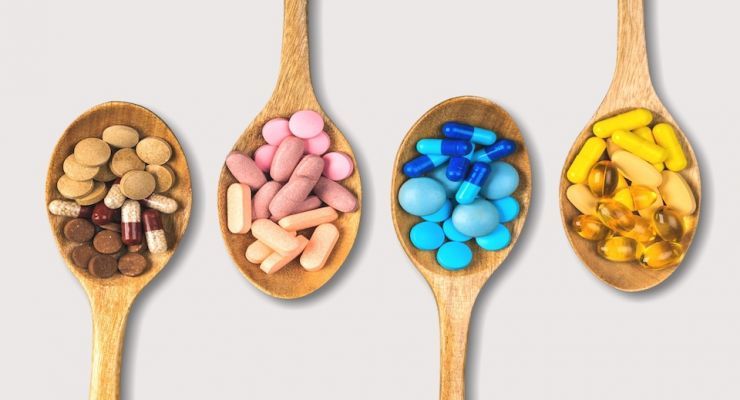For many people, vitamins and supplements are a crucial addition to their morning routine. They pop their daily pill and go about their day, convinced that this tiny capsule is giving them a healthier mind and body. The majority of diligent vitamin takers often take the supplements without even reading the label, confident that the FDA would never allow harmful or toxic ingredients to make their way into their miracle drugs. In reality, thousands of dangerous additives lurk in most regulated multivitamins, ultimately proving to be a source of contradictory health sabotage.
Keep in mind that even if you do buy organic, whole food supplements, they are not an adequate replacement for a healthy diet and lifestyle. Vitamins are not magic, and just because you take a pharmacy’s worth each morning, does not guarantee that you will be healthier. Focus first on eating plenty of fruits and vegetables, drinking water, and fresh air and exercise, and then go from there. Supplement does not mean substitute.
What may be hiding in your vitamins?
Artificial colors
Though it may seem strange and unnecessary, many companies add artificial colorings such as Green No. 3, Red No. 3, Red No. 40, and Yellow No. 5 to their multivitamins. These are many of the same artificial colors found in highly processed candy. So why are they in your vitamins? Simply put, these artificial colors are added to your vitamins to make them more palatable and attractive to the eye. It is a marketing ploy that is costing your health. Always check your vitamin bottle for any artificial colors as they have been linked to negative hyperactivity and abnormal behavior in children.
Hydrogenated oils
Most mainstream multivitamins contain dangerous hydrogenated oils such as safflower and soybean oil. Soybean oil is particularly detrimental as it is an oil known for being genetically modified and pumped full of unnatural pesticides. Even worse, these ingredients are added merely as fillers to make you believe that you’re getting more for your money. They serve no purpose whatsoever and have dangerous health ramifications.
Titanium dioxide
This toxic substance is not only a filler and coloring for vitamins, but it also is found in many cosmetics. It has been shown to affect lung function by increasing inflammation, and hamper immunity to various illnesses. Doesn’t that sound like something you want to put in your body? Simply put, it is a completely unnecessary, toxic substance that is added to vitamins merely to attract consumers. Supplement companies don’t seem to mind that it has been linked to kidney damage in mice. After all, what harm could it do?
Talc (Magnesium Silicate)
Talc, also known as magnesium silicate is another filler and anticaking agent that is found hidden in many supplements. Even worse, talc is not even technically considered food-grade by the FDA but is somehow added to supplements regardless.
BHT (Butylated Hydroxytoluene)
BHT is a preservative used to increase shelf life in products such as cosmetics and petroleum. It keeps vitamins from breaking down fats and helps them remain fresh for longer. Unfortunately, it also has some dangerous side-effects and has been named as potential cancer-causing agent.
Sodium Benzoate
Keep a wary eye out for sodium benzoate as this dangerous substance has the potential to cause cell and DNA damage and negatively affect your body.
Not all additives are bad
Keep in mind that some additives are necessary for the production of vitamins and come from natural sources. Some of these additives include:
- Xantham gum
- Calcium sulfate
- Calcium chloride
- Magnesium sulfate
- Plant cellulose
- Citric acid
Don’t panic if you see any of the ingredients listed above on the label of your supplement. These are entirely safe and will cause no damage to your body.
What to do
After hearing this laundry list of dangerous ingredients, you may want to write off supplements entirely. There is hope, however. Learning to read labels properly and buying certified organic, whole-food based supplements and incorporating these into a healthy lifestyle will protect you from the negative effects of popular multivitamins. Generally, supplements with fewer ingredients (especially ones you can’t pronounce) are better for you. Be cautious when buying discounted products as they may have labels that are not entirely forthcoming, or have sneakily hidden ingredients. Stay informed and stay safe!
-Susan Patterson

